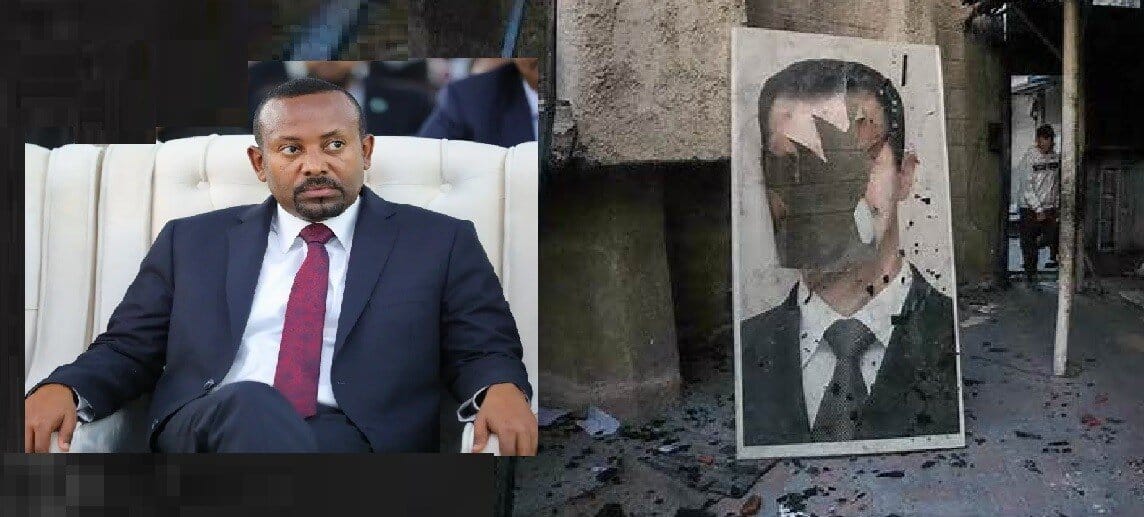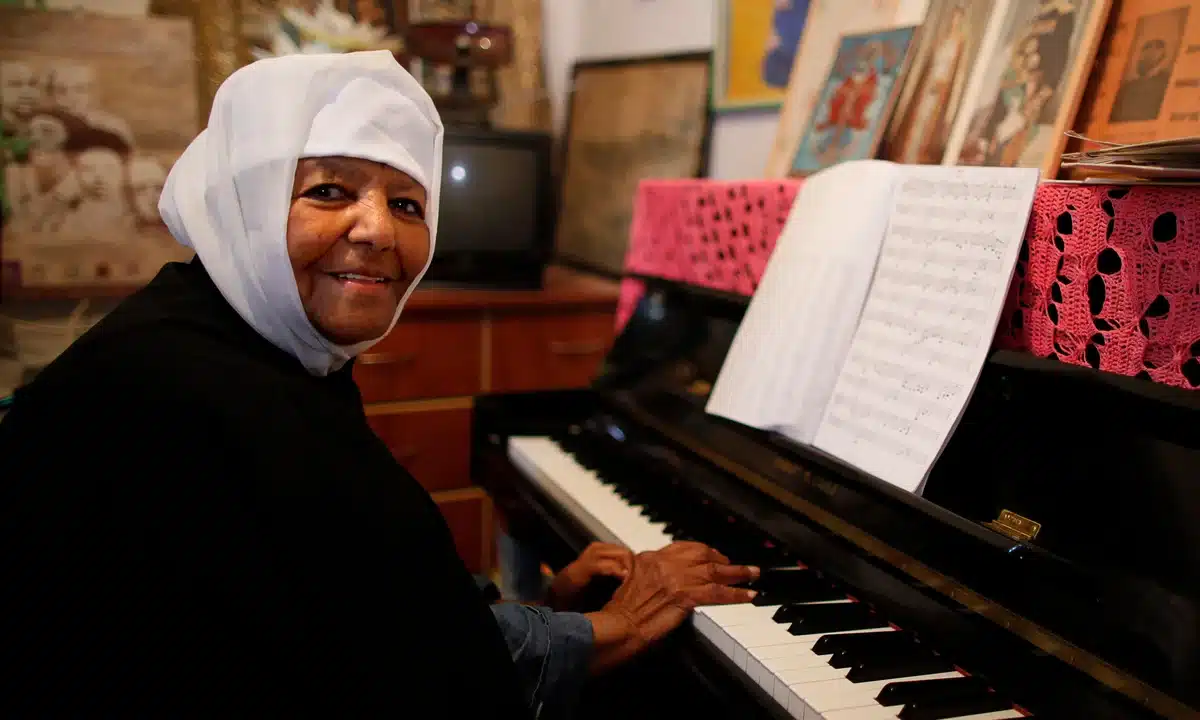PRESS RELEASE.
June 30, 2015. Washington, DC,
Not only are Ethiopian elections a farce—reconfirmed by recent regime claims of a 100% victory in the May 24, 2015 national elections—but so is the independence of the judicial system. This mockery of justice was shown when police re-arrested four young members of the Semayawi opposition party [Blue Party} after they were released from court. This happened not once, but three times, despite the fact they had already been freed each time by the court. They remain in jail as of today.
Weynishet Molla, Ermias Tsegaye, Daniel Tesfaye and Bethlehem Akalewerk had been arrested, jailed and beaten on April 22, 2015 after being charged with creating violence and disturbing the rally the EPRDF had called in response to the ISIS killing of 30 Ethiopians in Libya. Following their fourth arrest and jailing for the same incident, a security agent revealed that “someone at the top” of the ruling party opposed their release.
The three courageous, fair-minded judges who sat on the bench in this case, attempted to carry out their duty according to the law on the books. However, it is another example of how judicial outcomes are manipulated to serve the interests of the ethnic-based Tigrayan Peoples’ Liberation Front (TPLF), which controls the coalition government of the Ethiopian Peoples’ Revolutionary Democratic Front (EPRDF).
Weynishet, Ermias, Daniel and Bethlehem had been arrested, jailed and beaten on April 22, 2015 after being identified as leaders among those rallying that day. During the rally, numerous demonstrators strongly condemned the EPRDF, believing the ethnic-apartheid system, its brutal repression, and the related lack of opportunity for the majority were the underlying reasons so many Ethiopians put their lives at risk, hoping for a better life outside the country. Those murdered were among those in harm’s way. Fearing that this blame and discontent could grow in intensity during the rally, the TPLF/EPRDF prepared for a possible backlash. They devised a plan to identify and crackdown on the most outspoken anti-government participants.
Allegedly, the regime recruited many of the homeless or jobless persons on the streets to assist them in targeting opponents of the regime by paying them money to identify those demonstrators who displayed anti-government behavior or rhetoric. They supplied them with ink markers in three different colors to literally write on the clothes of these targeted demonstrators. The most outspoken, powerful, or influential leaders were to be marked with the color red, while followers and supporters were to be marked in black and less outspoken protestors in another color. The police were thereby alerted to those blaming the regime. These demonstrators were then stopped, harassed, interrogated and often arrested.
During this process, regime intelligence officials also collected the names, addresses and phone numbers of approximately 658 people. Many Semayawi Party members as well as others were arrested, jailed and beaten. They are in different jails throughout Addis Ababa and have been charged in different courts. Weynishet, Ermias, Daniel and Bethlehem were said to be among those arrested and beaten.
The case of these four was heard in court on Monday, June 15, 2015. The three judges on the bench decided they should be released, saying that the prosecutor was not able to give evidence of a crime or explain the reasons for the charges made against this group. One of them, Ermias, was able to bring a witness who gave him an alibi that he was not present in the place where he was accused. He was released.
The court said that since Weynishet, Daniel and Bethlehem were not able to give an alibi, the court would convict them with the crime of disturbing the rally, with the penalty of six months in prison; however, since they had already been in prison since late April, the court counted the two months in lieu of further time and ordered their release. On their way home, the police arrested them again and put them in jail. They had to appear in court again that same day; however, the same judges refused to hear the case, saying they had already judged them and nothing more would be done. They were again released and went to their homes.
On June 23, 2015, the police came to their homes and again arrested them. They were jailed and brought back to court that day. The judges asked why they were brought back to court and the police said they had new evidence against them pertaining to the original case. The court again rejected the basis and released them, but as soon as they left the building, the police re-arrested them again and threw them back into jail.
On June 25, 2015, all four of them were again brought them back to the same court. The judges once again refused to accept the new evidence on the same charge despite pressure from the police. They told the police they had already decided on this case and that the file was closed. The police claimed they had new evidence against them related to the charges and this was the reason they wanted to charge them again for the same crime. Again the judges stated, “We have decided on the charges; sentencing is done and we are not going to see this same case again.” They were released for the fourth time. Again, the police ignored the court’s decision and took the young people back to the 6th Police Station where they now remain.
According to reports we received, the police indicated that “someone from the top” wanted these young people jailed for six months or longer. We also later learned that the “new evidence” they claimed to have consisted of comments made by one or more of the four when they were rearrested for baseless reasons on June 23rd. Supposedly, they told the police: “No government lasts forever and when this one goes, we will get you” [like you are doing to us now].
Justice does not exist in Ethiopia and this is an example of it. The judges, who attempted to carry out the rule of law in a just manner, were undermined at every point by an upside-down judicial system that confers impunity based on ethnicity, loyalty to the TPLF/EPRDF and subservient compliance. Conversely, this is a politicized system where someone at the top can control the outcome to serve their own interests—regardless of the law or either the innocence or guilt of the accused.
In a democratic country, once a judge makes a ruling on a case, it can be challenged only by appealing to a higher court, but once the verdict is decided in the highest court, it cannot be changed. How different is this abuse of the judicial system in Ethiopia where the obstruction of justice has become blatant and shameless; showing how little concern there is for accountability. Donor countries should condemn the TPLF/EPRDF rather than reward them by overlooking the corruption of the legal process. Neither should they arbitrarily pick and choose who [which countries or leaders] they confront based on self interest; remaining silent when it is an ally and displaying outrage only when it is a more unfriendly country. It is wrong and becomes a threat to world peace as people become increasingly desperate under tyranny of this kind.
These judges stood up for what was right in an environment where it is not commonly done. Ethiopians who love their country are also within the ranks of the police, security system, the military and the TPLF/EPRDF. At some time they may also be sickened in their hearts and souls by this injustice. We strongly believe people can change and that we the people of Ethiopia, with God’s help, can build a better society for all of us. A few power holders at the top are now in charge of our future because Ethiopia has become a place where justice does not exist.
Outsiders expound on Ethiopia as being a successful model of development and economic growth; but in truth, much of it is a sham. Where it does exist, most Ethiopians are shoved aside from its benefits which are instead bestowed on the basis of ethnicity and TPLF/EPRDF party links. Even foreign corporations must toe the line with the TPLF/EPRDF if they want sustainable businesses within Ethiopia.
Where can the regime go from here? Can the TPLF/EPRDF win by a greater majority at the next election? How can you top 100% of the vote? One small group of people within one ethnic group dominates everything, a recipe for disaster. Sooner or later, if these shortcomings continue to be ignored rather than addressed, its collapse may be harder and all of us will suffer all the more for it—not only Ethiopians.
The world is already dealing with the symptoms of Ethiopia’s deterioration in terms of the floods of refugees. Why are they leaving? Everything is going wrong in the country—from the lack of democratic institutions, the rigged election, lack of any political space, the repression of freedom and rights, the rising numbers of political prisoners, the rigid control of the flow of information, the limitations on economic growth when monopolized and corrupted by the ethnic-based ruling party, and now, another example of the miscarriage of justice in the courts at the whim of someone at the top of the TPLF/EPRDF. This is a scenario that could explode if not handled properly, not only by Ethiopian power-holders and the people, but also by donor countries.
The arrest of these young Ethiopians began with the national outcry of our people, grief-stricken following the brutal beheadings of their fellow-people in Libya. They joined tens of thousands of others who were outraged by the killings, believing the regime was responsible for driving the young from the country. Weynishet, Ermias, Daniel and Bethlehem were rounded up for saying the truth out loud—that the injustice and ethnic-apartheid system of the TPLF/ERPDF was largely to blame for the death of these thirty Ethiopians at the hands of ISIS by making them vulnerable to dangers they would otherwise never face. Even uncivilized societies know the meaning of government and justice more than this dictatorial regime that still unashamedly claims themselves to be a government of the people.
This is the so-called democratic Ethiopia that US President Barack Obama will be visiting at the end of July. This is the Ethiopia that former US State Department Deputy Wendy Sherman portrayed as a democratic country that was getting better and better with each election. This is the Ethiopia being portrayed as a model for Africa. It is time to speak the truth—Ethiopia is critically ill and if its illness is ignored, denied or not carefully treated and contained; it could spread beyond its borders. The TPLF/EPRDF is in the business of pretending, but pretending is to no one’s advantage, including theirs. It will only make recovery all the harder or its implosion, all the more devastating and far-reaching.
May God help Ethiopians have the will and courage to face the challenges ahead, for the sake of all of us.
=========================== ============================
For more information, contact Mr. Obang Metho, Executive Director of the SMNE. Email: Obang@solidaritymovement.org
TPLF/EPRDF Makes a Mockery of Judges’ Decision to Release Semayawi Youth by Over-riding Court Verdict
Latest from Blog

Has Human Behavior Changed Since Man Was Created or Evolved?
By Belayneh Abate The world is stunned by the horror and the indescribable crimes committed in the notorious prisons and elsewhere in Syria for more than half a century. These types

Post-Assad Syria: Navigating Hope and Uncertainty
Dahilon Yassin The Syrian uprising against Bashar al-Assad’s regime which escalated into a civil war was violently crushed by the Syrian government in 2011. 13 years later, a surprise rebel offensive reached

The Fall of Assad: How Israel, Turkey, and Iran Are Redrawing Syria’s Geopolitical Map
December 12, 2024 Caleb T (Dr.) Map Showing Regional Alliances in the Syrian Civil War before the removal of President Bashar al-Assad’s regime Other nations in the Middle East dealing with political

Ethiopia: Knowledge and Accountability Matters (Part One)
Tsegaye Tegenu, PhD 2024-12-13 These days, I’ve been engaging you with discussions on researches and data related to the challenges facing our country. The three articles provided—“Ethiopia: Rapid Population Growth, Fragile Contexts

Abiy Ahmed’s Deception and Failure in the Turkey-Mediated Ethiopia-Somalia Agreement
Dr. MeKonnen Birru (birrum@uhd.edu) The announcement of the peace agreement between Ethiopia and Somalia mediated by Turkey marks a significant diplomatic development, but it also highlights a series of contradictions and potential

Abiy Ahmed’s Drone Strikes in Wollo, Bete Amara: A Tragic Toll of Over 30 Lives
Abiy Ahmed drone attacks in Wollo, Bete Amara, have resulted in the tragic loss of over 30 lives, including that of a five-year-old child, while more than 100 individuals sustained injuries. This

Ethiopia’s Fano Rebellion: The Amhara Resistance Reshaping the Horn of Africa
By Taha Sakr DNE Africa — Ethiopia, a nation with a long history of political upheaval, is now grappling with the resurgence of the Fano rebellion—a powerful Amhara-led resistance movement with deep

Deception, Centralization, Manipulation and Betrayal: The Complex Leadership of Abiy Ahmed Ali Paperback
by Dr. MeKonnen Birru (Author) December 10, 2024 Deception, Centralization, Manipulation and Betrayal: The Complex Leadership of Abiy Ahmed Ali Abiy Ahmed, the Prime Minister of Ethiopia from 2018 to present, emerged

The Legacy of Successive Dictators: The Fall of Bashir
Mengistu Musie (Dr) mmusie2@gmail.com Abu Mohammed was the name given to a militant who fought for years against the regime in Syria. After spending significant time in battle, he returned to Damascus,

Ethiopia United: A Call to All Ethiopians by Fano
This message serves as a rallying cry for the collective unity of all Ethiopians, emphasizing the importance of solidarity in the face of challenges. Fano urges every citizen to come together, transcending

A Comparative Analysis of Abiy Ahmed and Bashar al-Assad: The Fragility of Authoritarian Leadership
Dr. MeKonnen Birru Professor @ the University of Houston (birrum@uhd.edu) Abiy Ahmed, the Prime Minister of Ethiopia, and Bashar al-Assad, the ousted President of Syria, may appear vastly different on the surface,

A Love Letter to Ethiopia, A Promise of Unity: Emahoy Tsegue Mariam and her “Souvenirs”
By Solyana Bekele Dubbing her the “Mother of Ethiopian Classical Music,”—as grand as that epithet sounds—might still be doing Emahoy Tsegue Mariam Gebru and her haunting, ephemeral, and አስተካዥ compositions a disservice.

Perspectives to Understand and Approaches in Solving Problems of Ethiopia
Tsegaye Tegenu, PhD 2024-12-09 There are tools, steps, and lenses in understanding (diagnosis) and solving (intervention findings to) the problems facing the country. The first step in unpacking the challenges is called

Abiy Ahmed’s state-controlled media has exhibited a significant lack of commentary concerning the removal of Bashar al-Assad from power.
The choice made by Ethiopian state media organizations, including Fana Broadcasting and the Ethiopian Broadcasting Corporation (EBC), to refrain from covering the ousting of Syrian President Bashar al-Assad, while simultaneously addressing other

The Lesson from Bashar al-Assad’s Collapse
Michael Rubin The current inquiry pertains to which additional nations may be susceptible to the same factors that contributed to the downfall of Assad. The Insight Other Nations Should Derive from Assad’s
